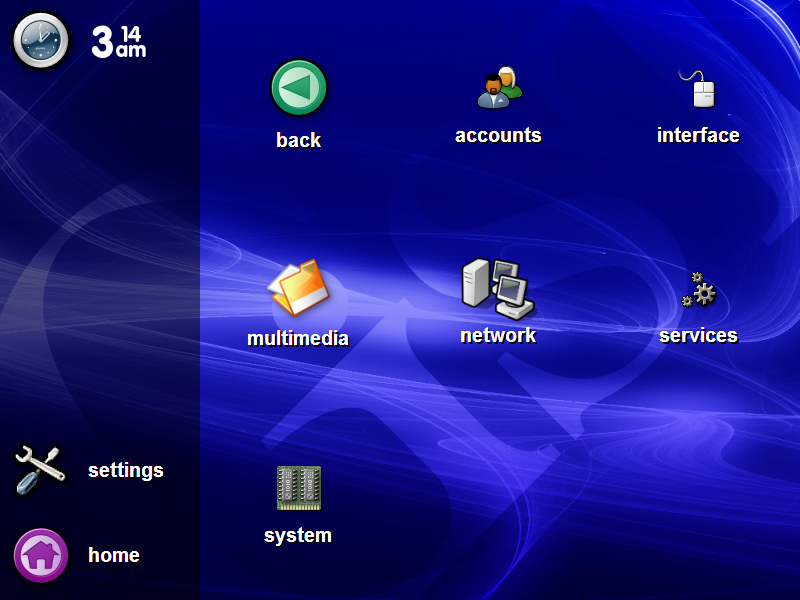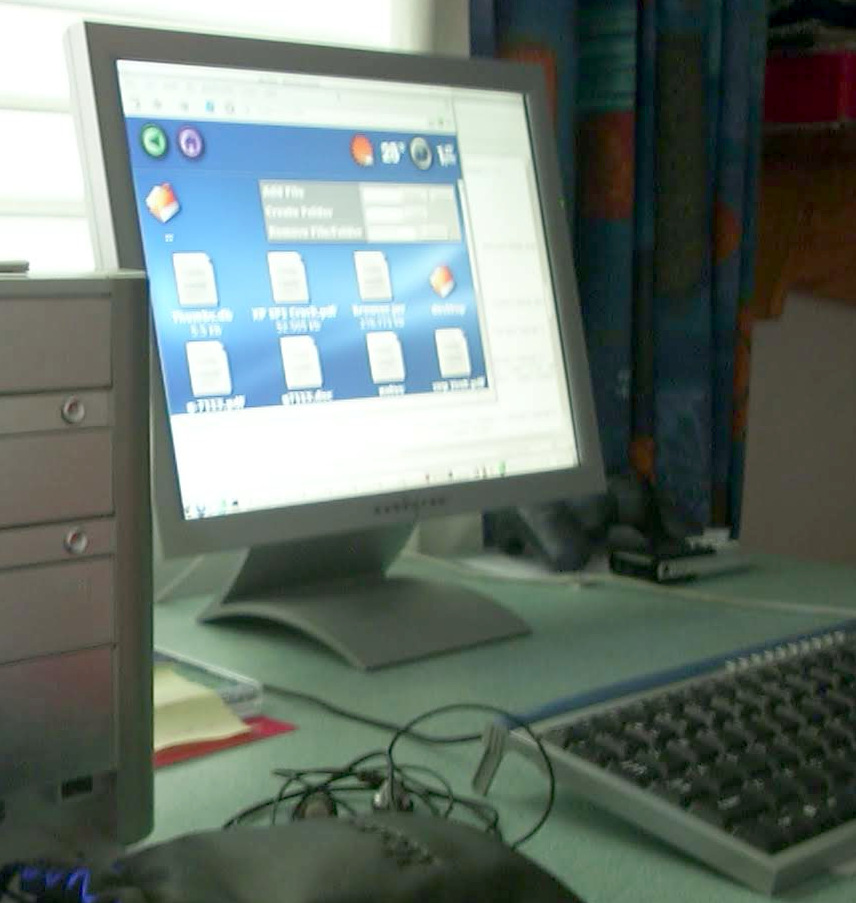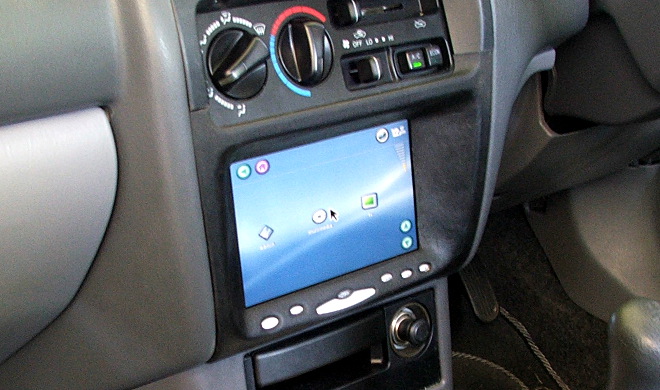
GiST was a specialised linux distribution that started out as a heavily customised Slackware build, which transitioned over to a completely new Linux based on the Linux From Scratch project. Designed to run from CD and provide a number of different interfaces depending on the intended use:
- an instant useable desktop with common applications
- web-based touchscreen interface for car & multimedia use
- server with web-based configuration area for firewall/proxy/file storage use
The system was able to be run “live” direct from a CD or usb key, or installed from the “live” environment to the systems harddrive. Each instance could be pre-configured by way of a global config file to match the systems intended use (eg. Car PC installs would run the multimedia touchscreen interface by default).
GiST contained automatic build scripts (Bash) which built the entire system for a chosen architecture (i386 for compatibility with VIA Eden boards) automatically inside of a chroot development environment, resulting in a bootable ISO over a period of around 8 hours (circa 2006). This built all facets of the system from the sources of the applications, including all libraries, chroot bootstrap environment, & highly optimised SMP kernel.

Features included:
- Desktop Interface (Gnome)
- Evolution
- OpenOffice
- Gimp
- Inkscape
- Firefox
- VideoLan
- Etc
- Multimedia Interface
- Internet connectivity via bluetooth enabled mobile phone
- Digital TV
- Media playback of all common formats
- Weather & Clock display
- Web browsing
- TV guide
- WIFI connectivity
- On-screen volume controls
- Server
- iptables firewall
- squid proxy
- ppp / isdn / adsl internet connection manager with auto-redial
- dns forwarding with cache
- dyndns
- samba / smbd fileshares
- ftp server
- printer sharing
- DHCP/BootP/tftp server (allowing for instant diskless computer labs)
Development stalled once a shift to i686 architecture became increasingly necessary & other ‘easy’ distributions such as Smoothwall & SME Server became more mainstream.
